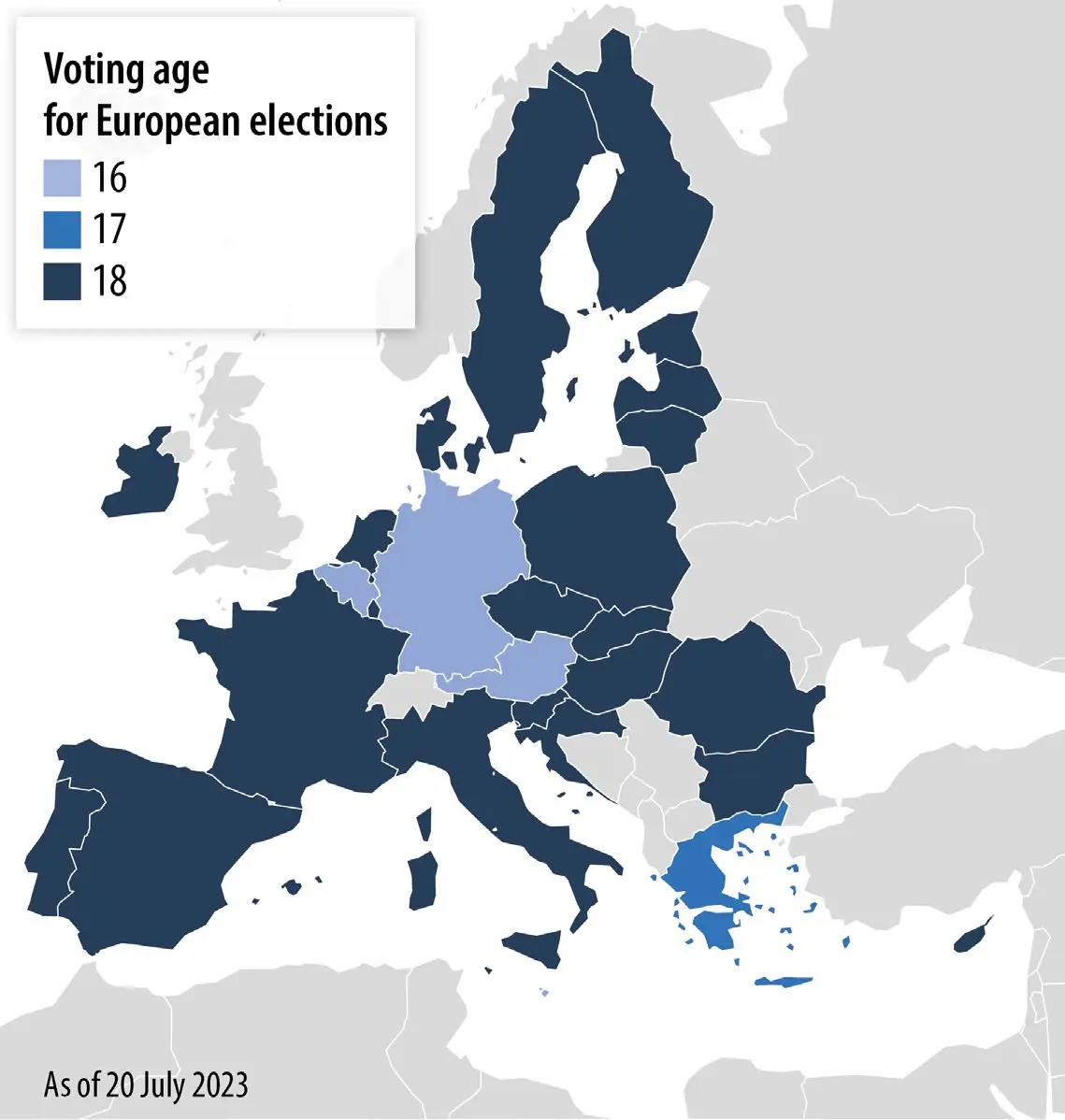In that case mods should do that ASAP, to give enough time to people to notice it before the server shuts down.
Also should probably create the new community, lemm.ee doesn't seem to have one already.
Is there a way to move it to another instance?
Hope I'm wrong, but I don't think so.
What's the matter with this instance? I see that the main page doesn't load.
Article 17 - five years later
Today marks the fifth anniversary of the entry into force of the Directive on Copyright in the Digital Single Market. It is hard to remember how divisive and controversial the Directive was during its creation. The Directive’s most controversial provision – Article 17 – which brought hundreds of tho...

Agora co CERA, a saber que participación haberá.
I'm curious, what are the other electoral systems you're talking about?
Aprecio o optimismo, pero as estatais son moito máis competitivas e este sistema electoral favorece moito ao PP.
É incrible, nada lles pasa factura.
Might be an issue with fonts?
Honestly, just use Debian. It can run under 200MB of RAM (default install), so it beats all distros on the list except for TinyCore and SliTaz, and it actually has packages.
Doesn’t look like more direct.
EP parties usually have a candidate for the Commission that they show during election, so voters know who they will support. On the other hand, the European Council members are usually chosen from internal politics and issues, and at different times.
Last time a union had president, it was quickly dissolved before first term ended.
That's just a name though. The election would stay the same, even if it were called «First Janitor».
I don’t think having one person on position like this is good for union.
The position is the same.
Why? It would give citizens a more direct way to choose the Commission.
Honestly, no idea. The only solution I can see are NGOs. Specially at EU levels, you need to show that your opinion has support, and that you aren't just pushing your fringe idea. And on that front I believe the EU hasn't been lacking.
I think the EP would be a lot more accountable if it was elected on single member constituencies. This also has its own issues (main one being no minority representation), but it would allow a more direct connection with their electorate and people would know who to talk to when they want to push for something.
The only big change I can see will be Parliament proposing the Commission President, instead of the European Council. Apart from that, experience shows that motions of no confidence are rare, so I don't think this will make the Commission less independent.
would perhaps not have been feasible to realize like they have been, if the European Commission couldn’t have the best commissioners for the jobs.
Those acts are approved by Parliament, which is where the Commission will be responsible to.
The solution is not to ban lobbyist (a big part of the EU legislative process is listening to outside organizations), but to put them on equal footing to normal people.
Future of the EU: Parliament’s proposals to amend the Treaties
Following the Conference on the Future of Europe and in the context of unprecedented challenges and multiple crises, MEPs put forward proposals to change the EU.

From that link:
- a more bicameral system and fewer deadlocks in the Council, through more decisions by qualified majority voting and the ordinary legislative procedure;
- a fully-fledged right of legislative initiative, and a co-legislator role for Parliament for the long-term budget;
- an overhaul of the rules for the Commission’s composition (rebranded as the “European Executive”), including the election of its President (with the nomination to be done by Parliament and the approval by the European Council - a reversal of the current process), limiting the number of Commissioners to 15 (rotating between the member states), enabling the Commission President to choose their College based on political preferences with geographic and demographic balance in mind, and a mechanism to censure individual Commissioners;
- significantly greater transparency in the Council by publishing EU member state positions on legislative issues;
- more say for citizens through an obligation for the EU to create appropriate participatory mechanisms and by giving European political parties a stronger role.
Some changes missing from that link that I found interesting:
- Switch from «High Representative» to «Union Secretary» and «President of the European Council» to «President of the European Union».
I very much prefer the old names, and I don't like the downgrade from High Representative to Secretary.
- Parliament now chooses by itself how to divide its seats between member states.
Not really in favor of this, this should be the European Council's job.
- More power to the CJEU for resolving inter-institutional disputes, and involving it in the process for suspension of EU membership.
- Gives more agency to the European Defence Agency and gives the CSDP its own budget. It also copies NATO's article 5 wording for mutual defense.
- Amending the treaties needs the approval of 4/5 of member states.
That would currently mean 22 out of 27, so no more French-Dutch veto.
- Adding the risk to cross planetary boundaries when considering environmental policy (?)
- Adds a more concrete language, from «may» and «suggest» to «shall» and «enforce».
I didn't know US speakers refer to their states by acronyms. We don't do that in my country.
I've seen many references to TCP/IP as meaning IP + everything-on-top, usually when talking about other networking technologies like UUnet, OSI, etc. Also as the TCP/IP stack, usually meaning the (Free)BSD networking code used in other systems.
Voting age for European elections


https://www.europarl.europa.eu/thinktank/en/document/EPRS_ATA(2023)749767
If the author really wants Blizzard to use his code then he doesn't have much of a choice. Although since it has a GPL library the whole project is distributed under the GPL.
I believe OP has made some mistakes when pasting the text
[Diagram]
Oracle VM: Linux
External IP: 192.0.2.1
Internal IP: 172.16.0.2
|
| GRE Tunnel
v
Home Server: Linux
Internal IP: 172.16.0.2
|
|
v
Firewall: FreeBSD
Internal IP: 172.16.0.1
External IP: 192.0.2.2
[Text]
Home Linux Server GRE config:
$ sudo ip tunnel add gre0 mode gre remote 172.16.0.2 local 192.0.2.1 ttl 255
$ sudo ip link set gre0 up
$ sudo ip addr add 10.100.10.1/24 dev gre0
Home Linux Server GRE config:
$ sudo ip tunnel add gre0 mode gre remote 192.0.2.2 local 192.0.2.1 ttl 255
$ sudo ip link set gre0 up
$ sudo ip addr add 10.100.10.1/24 dev gre0
Firewall:
nat on igb1 inet from ! (igb1) to any -> (igb1:0)
nat on igb0 inet proto gre from 172.16.0.2 to any -> (igb1:0)
rdr pass on igb1 inet proto gre from 141.148.84.178 to (igb1) -> 172.16.0.2
Apart from being open source what is Linux?
The codebase in git.kernel.org's torvalds/linux.git
Could I not create my own operating system that is different to windows or Macos and call it Steve
Of course, in fact many people have done so: TempleOS, MINIX, SerenityOS, etc.
Not that I know of, but here are some between Lemmy and Mastodon:
- Upvotes in Lemmy don't translate to favorites in Mastodon
- From the Mastodon side communities are normal accounts that boost published posts.
- From Mastodon Lemmy's posts are top-level messages (i.e. not a response), and comments are responses to the original message.
- You can send a post to a Lemmy community from Mastodon by publishing a post and tagging the community (@[email protected])